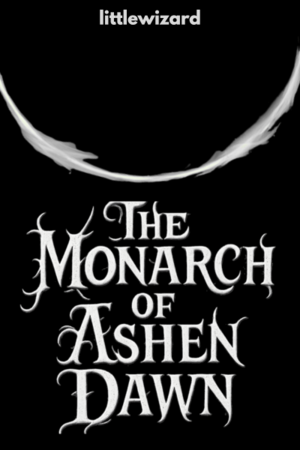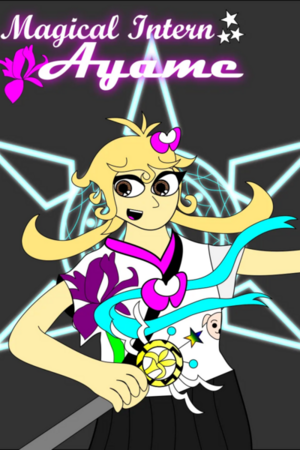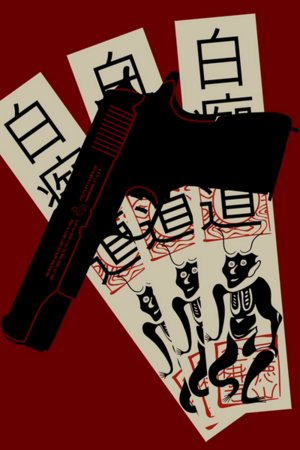Chapter 1:
The Bearer (1)
The Monarch of Ashen Dawn
~ 28 Augustus 357
It’s been two weeks.
Quite funny, they had the same calendar system as in Earth.
Fourteen sunrises in a world not yours.
You’ve stopped counting after the tenth but the sky here has no smog, and the stars are visible even in the city, so they make it easy. You sleep by their arrangement. Dreamless. Restless.
The memories—his memories—come slowly.
Not all at once. Not like a download.
More like fog peeling off a forgotten town.
You know the name of this town now: Eisenhavn.
A city of stone streets and brass domes, where telescopes point at the sky like spears trying to cut open heaven.
The locals speak Vellic, a language with aristocratic phonetics and precise grammar. Each sentence a ritual. Each vowel dipped in ceremony. The tone dances—rising and falling like a song no outsider is born knowing.
You weren’t born knowing it either.
And also he wasn't since he is an outlander from another nation. But he successfully learned it.
And so now, so are you.
The stairs creak underfoot as you descend from your room.
At the bottom, someone waits. A woman.
“Morning, Ar,” says that woman, already waving a wooden plate in your direction.
She’s wearing mismatched slippers again. One wool. One leather. Her apron looks like it lost a fight with a spice rack and won, but at a cost.
“Breakfast,” she declares proudly. “Baked by time itself.”
The bread is dense, dry, edged like weaponry. You take it.
“Thank you, Mrs. Palois,” you say.
She leans in, eyes narrowed. “Still got the look of a man who slept next to a ghost. Dreamin’ again, were you?”
You don’t answer. She cackles anyway.
Then she turns back to her cauldron—yes, it may as well be one muttering in Vellic, stirring something that smells like boiled earth and strong opinion.
You sit by the window. Same seat. Same view.
Eisenhavn exhales its morning breath.
The cobblestones glisten with dew. A cart creaks past. A child shouts in Vellic, chased by a chicken dressed in red ribbon. The absurd has rhythm here.
You chew the bread. It fights back.
Another thought slips in.
The boy—you, not you! He used to sit here. He mapped stars on napkins. He believed constellations carried meaning. That the sky whispered back.
Do you believe that now?
Maybe.
But you miss coffee.
And it will be better if You really have one to eat with this stone-like bread.
After several failed negotiations with the bread, you reach for the wooden cup beside it, an offering from Mrs. Palois. Water, lukewarm and vaguely metallic. You pretend, for one desperate moment, that it's coffee. Real coffee. Americano. Morning ritual in a paper cup, still steaming, bitter like city rain on concrete.
But It isn’t.
You drink anyway. Because hydration is hope.
Then you speak, dry throat, reluctant tongue.
“I left the coins on the table.”
The words clink heavier than the money itself. Copper. That’s what they call the coins here. The paper bills are Vounds—creased, frayed, a little too soft, like they've been in too many pockets and none of them clean.
You place the copper down like it’s proof of existence.
Mrs. Palois doesn’t check. She never does.
She just stirs her pot of questionable breakfast theology and hums a hymn that smells of cloves and passive judgment.
You walks out of the inn. One foot after the other across the uneven mosaic of Eisenhavn’s paving stones. Cobbled in haste, worn by history. The morning air bites gently, but not cruelly. The city exhales around You: the sharp clatter of hooves on stone, the creak of well-oiled axles. Carriages. Some lacquered, some rusted. All out of reach.
Those are for people who can afford to forget how far their legs can carry them.
Not You.
Not the boy whose body he now inhabits, a boy with no parents, no inheritance, just a name and the absence of one. A coincidence, perhaps, that two strangers from different worlds should both be orphans.
But coincidences are how fate keeps its secrets.
“News today! News today! Body found dead on Peters Street!”
The cry cuts through the morning haze like a siren. Your ears twitch. Reflex. Some instincts cling harder than memory. Dead. That word still wraps itself around his thoughts like wire. You turns—follows the sound.
The man shouting the headlines is older than expected. Forty, maybe forty-two. Skin like sunburnt parchment. Cheeks hollowed not by hunger but by time. He leans against a crooked lamppost, coat threadbare at the seams, the ink-stained bundle in his hands shaking slightly from the city’s breath or his own.
Arima steps forward.
“May I see the paper, sir?”
There’s a pause.
Then, the eyes—deep set, yellowed in the whites, scanning him not as a customer but as a question. Not asked. Not welcomed. Just measured.
The silence between them isn’t empty, it’s full. Of things not said in polite company. Of borders drawn in skin tone, in accent, in the cut of a foreign jaw.
“One Copper,” the man says, finally. Not as invitation. As transaction. As dismissal. As if to say: If you’re going to be seen, at least pay for the privilege.
And you definitely knows.
You've seen it before, both here and there.
Even poverty carries hierarchy. Even misery has gatekeepers.
A headline catches your eye. Murder.
No prints. No witnesses. No real lead.
Except it’s somewhat messier.
A woman, mid-thirties, found face-down in her own apartment, soaked in a pool of her own blood. Not stabbed. Not shot. Torn.
As if some animal had been let loose inside her ribs.
Her liver and heart gone. Removed with care, but not with precision. Like something was feeding. Or collecting.
The report offers no suspects. Just unease.
You're not a detective. Not here.
Just a student. Another face in the stone corridors of Helbrecht University.
Past‑life memories? Dead weight in summer.
No badge. No gun. Just ink-stained syllabi and cheap cafeteria coffee.
You flip the page. Another headline.
"Workers Protest Against Racial Discrimination — Cities Paralyzed"
Bromstadt. Grausholm. Vallencroix. All burning quietly beneath clenched fists and marching boots.
The cities are stirring. Old tensions rising from their graves.
You wonder, how long until Eisenhavn joins them?
Whatever the case, he won’t be joining any protest.
Not in Bromstadt. Not in Vallencroix. Not in Eisenhavn either, when the chants eventually reach these boulevards and rust-colored tram stops.
The Federation of Helbrecht loves its cheap imports. Students from overseas. Workers from the fringes. They keep the nation running — barely on wages that fall through your fingers like dust. Sign a contract at 19. Wake up at 30 in the same gray dormitory, wondering if you ever really graduated.
“Internship,” they call it.
You know the game.
But the boy who used to own this body didn’t. That much is clear. Too quick to sign a deal. Too eager to belong. "He" made choices He wouldn’t have — careless, unhedged decisions with no backup plan.
You feel it in the slight tremor in your hand, the weight of unpaid fees, the hollow look in the clerk's eyes when you ask for extensions.
You’re stuck. In debt. In this city. In someone else’s life.
And still, the thought creeps in quietly, like a roach under the door.
You need to find a way back.
To your world.
Before graduation. Before the suits hand you a contract and a smile. Before you wake up 15 years from now with no name, no home, just a foreign degree and a broken back.
You have time.
Not much. But enough to figure out what went wrong.
And maybe, just maybe, how to unmake it.
Yes, You definitely have to come back to your old world!
Some amount of minutes pass unnoticed, lost somewhere between your footsteps and the cold stone beneath them.
You arrive.
The university, looming as always, wears its age like a crown of moss and ivy. You pass through its gates, slip into one of its buildings, familiar, in a way that feels unearned and then make your way to the classroom.
Others are already here. Talking. Laughing. Existing.
You made it just a few minutes before the lecture begins. Not too early to draw attention, not too late to get scolded. Just in time to remain a ghost.
Not long after, a man enters the classroom.
Sharp suit. Sharp features. Early forties, maybe. Silver at his temples, but not the kind that withers—no! this is the kind that dignifies. He carries himself like he owns the land he walks on. Like a noble in exile playing professor for the amusement of lesser minds.
A few students whisper. Admiration, probably. Respect, maybe. Fear? That too, in a subtle way.
But...
What the—!
There's something else.
Behind him.
Dragging in with him.
A shadow, impossibly black. It clings to his back like a cape of nightmares, rippling, formless, no real shape, no true edge. Yet within it: teeth. Jagged. Hungry. A suggestion of eyes, or at least something pretending to be eyes. Watching. Not blinking. Not human.
You freeze.
He hasn’t said a word.
But he turns his head, subtle, calculated... and his gaze locks onto yours.
Direct. Unblinking. Knowing.
You’re sitting in the middle row. End seat. No cover. No way out.
F*ck.




Please sign in to leave a comment.